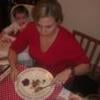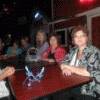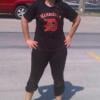Search the Community
Showing results for 'alcohol'.
Found 17,501 results
-


Do you count net carbs or all carbs?
Tiffykins replied to Becca's topic in POST-Operation Weight Loss Surgery Q&A
A carb is a carb. For me it was/is a patience thing, plus I'm not sure I can fully trust manufacturers on fiber counts that would negate the carb intake(Mac on OH posted this back when I was in my losing stage, and it made sense then and now). I think it boils down to protein to carb ratio. My protein to carb ratio had to be a minimum of 4:1 meaning if the protein count didn't have at least 4 times the amount of carbs, it never went past my lips. I was especially cautious with carbs in protein bars/drinks. I'd see some protein bars had 15gr of protein, but had 25-40grams of carbs. Those carbs, plus the usual sugar alcohols in protein bars were my carb allowance for an entire day. I'd rather grab some beef jerky or cheese over those kind of bars. -
I found this info and wanted to pass it on. It has a lot of ideas on foods to eat in each food stage after surgery. PLEASE clear ALL info with your doctor first, though!! Dietary Guidelines after Bariatric Surgery The purpose of the following guidelines is to reduce the symptoms associated with gastric bypass surgery, promote long-term satisfaction, and to achieve and maintain a desirable weight. The diet following surgery is divided into three phases. Phase I: First 2 weeks* after surgery - liquids (*Time frame varies according to physician) Acceptable beverages include: Water Flavored waters that are sugar-free and non-carbonated Crystal Light® (generic brands are fine) broth, bouillon, consommé (chicken, beef, or vegetable) Sugar-free popsicles Sugar-free Gelatin "Sport drinks" (Gatorade, Powerade) slightly diluted with water Sports drinks with less sugar such as Powerade Zero, G-2, or Propel Tea: unsweetened or artificially sweetened; iced or hot; black, green, or herbal (decaffeinated is best, but caffeinated fine if less than 2 cups a day) coffee (decaffeinated is best, but caffeinated fine if less than 2 cups a day) Sugar-free, fat-free hot cocoa (made with milk) Skim, 1%, Ultraskim, or Superskim milk* Fat-free or low-fat soy milk, Lactaid®, or Dairy Smart® No Sugar Added Carnation® Instant Breakfast Any other Protein supplement as long as the first ingredient states "whey protein isolate" or "soy protein isolate" (example: Bariatric Advantage®) Tomato Soup made with 1% or skim milk *Use caution as some people become lactose intolerant after surgery. If you experience intolerance to dairy, try soy milk, Lactaid®, Dairy Smart®, rice milk, or almond milk. Avoid: Fruit juices: both 100% fruit juice and those with added sugar Diet soda (or anything that is carbonated) Alcoholic beverages Suggestions for Phase I Diet: Increase liquids as tolerated to at least 2 liters a day (64 oz., or eight 8 oz. cups). Drink enough Fluid to keep your urine a clear, pale yellow color. If your urine becomes cloudy, dark or foul-smelling, drink more! Sip slowly throughout the day. Drink 8 oz. of fluid over a period of 1 hour. Do not gulp liquids or drink too quickly. Gulping or drinking too fast can cause abdominal pain and/or nausea. Protein goal is 60 to 80 grams/day; this may not be possible at first, but patients should work towards this amount of protein. It is very important to avoid any liquids with a high amount of sugar at this time (more than 15 g. in an 8 oz. serving). Sugary liquids may cause dumping syndrome, which is something you do not want to experience. Plus they are an added source of unwanted calories. Avoid drinking from a straw. When you drink from a straw you swallow more air, which may make you belch more often. Carbonated beverages are to be avoided for the same reason; they will cause excess gas. Pre-freeze or refrigerate plastic bottles of water, Crystal Light®, tea, etc. and carry the bottle around with you so that you can take small, frequent sips of fluid throughout the day and avoid becoming dehydrated. During this phase of the diet, begin taking a chewable multivitamin/mineral supplement twice a day. Other Vitamin and mineral supplements (Calcium, Vitamin D, vitamin B12, and iron) may be started as well. (See the vitamin section of this handout for examples). Phase I Sample Menus Note: Times of day are irrelevant! The point is to sip constantly during your waking hours. First 2 weeks after surgery -- generally sip on 8oz. fluid over a one-hour period of time. 8am: 8oz. water & Multivitamin 9am: 8oz. decaf coffee w/ Splenda® 10am: 8oz. skim milk + one serving of approved protein supplement 11am: 8oz. Crystal Light® 12pm: 8oz. chicken broth 1pm: ½ cup sugar-free gelatin 2pm: 8oz. water 3pm: 8oz. water 4pm: 8oz. skim milk + one serving of approved protein supplement 5pm: 8oz. vegetable broth 6pm: sugar-free popsicle 7pm: 8oz. herbal tea & multivitamin 24oz. water + 8oz. Crystal Light + 16oz. broth + 16oz. decaf coffee/tea + 4oz. gelatin + 1 popsicle + 16oz. skim milk = at least 84oz. fluid and ~ 66g of protein Note: if abdominal cramping, bloating, nausea and/or gas is experienced with cow’s milk, try soy milk or Lactaid®. 8am: 8oz. water & multivitamin 9am: 8oz. Orange sugar free, noncarbonated beverage 10am: 8oz. skim milk + one serving of approved protein supplement 11am: 8oz. sugar-free hot cocoa 12pm: 8oz. beef broth 1pm: 8oz. decaf ice tea w/ lemon 2pm: 8 oz.skim milk + one serving of approved protein supplement 3pm: sugar free popsicle 4pm: ½ cup sugar-free gelatin 5pm: 8oz. water 6pm: 8oz. chicken broth 7pm: 8oz. water & multivitamin 32oz. water+ 16oz. milk + 16oz. broth + 16oz. ice tea/hot cocoa + 4oz. gelatin + 1 popsicle. = at least 84oz. fluid and ~ 66g of protein Phase II: Week 3-6 weeks after surgery - Soft Foods Protein (include one of the following protein foods at each meal) Fat-free or low-fat cottage cheese and ricotta cheese Fat-free or low-fat artificially sweetened yogurt. Look for versions with less than 15 grams of sugar per serving. Low-fat or fat-free Greek yogurt Sugar-free, fat-free pudding eggs, egg whites, Eggbeaters® (poached, scrambled, soft-boiled) Sugar-free egg custard Tofu Canned baby meats/pureed meats Sliced/shredded fat-free or low-fat cheese Canned/vacuum packed tuna, salmon, chicken Baked fish that flakes easily with a fork (cod, salmon, tilapia, crab meat, etc.) Thinly-sliced lean deli turkey breast or ham Lean ground beef, pork, or turkey (93% lean or better) Only include the following foods in your meal plan if you are consuming 60 to 80 grams of protein a day: Fruits Unsweetened applesauce Diced peaches or pears (canned in own juice) banana (soft) Vegetables Soft-cooked vegetables such as carrots, green Beans, broccoli, cauliflower (mushy, not crunchy) Starch/Other Mashed potatoes, sweet potatoes, or winter squash Dry Cereal soaked in milk Cooked cereals (baby oatmeal, cream of wheat/rice, farina, grits) made with milk *May add nonfat dry milk powder or Protein Powder to foods and beverages to increase protein content. Allowed Condiments Sugar (no more than one teaspoon per meal) Artificial sweetener (Splenda®, Equal®, etc.) Non-dairy, fat-free, or powdered creamer Light margarine (free of trans-fats) Ketchup Light or fat-free mayonnaise Sugar-free jam, jelly, or preserves Reduced-fat and fat-free salad dressings Hot sauce Mustard Use Sparingly Butter and regular margarine Cream Regular mayonnaise Cream cheese Natural Peanut Butter Avoid--these foods usually are not tolerated well this soon after surgery. Raw fruits (except bananas), dried fruits, and raw vegetables Corn, peas, and popcorn Pasta, noodles, rice, bread Nuts and coconut Alcohol Carbonated beverages Greasy or fried foods Suggestions for Phase II diet: During this phase, begin the practice of eating only 3 small meals a day. Do not snack or “graze” throughout the day. Grazing and snacking lead to poor weight loss after surgery. Grazing is also associated with significant weight regain after surgery. Make it a habit to eat very slowly (putting your fork down between each bite) and chew your food very thoroughly (to a mushy consistency). Try to make each meal last 20 minutes. Take small bites. Learn to stop eating when you feel full, which initially may be after only 2 or 3 bites of food. Indications of fullness include a feeling of pain or pressure in the center just below your rib cage, nausea, or pain in your shoulder or upper chest. Eat only until you feel satisfied. Your meals will be about 3-4 oz. (½ cup) in total size. Use small plates and cups, instead of large plates and bowls, for your meals. At this time, get into the habit of eating at least 2 oz. (or ¼ - ½ cup) of a protein rich food at each meal. In addition, eat the high protein portion of your meals first. If you are unsure which foods are high in protein, see the protein section of this handout. Aim for at least 60-80 grams of protein every day. Usually it is not hard to consume enough protein from food alone as long as you concentrate on eating high protein foods at each meal. Protein supplements (powders, shakes, bars, etc.) in most cases are not necessary. However, if you are truly concerned that you are not getting enough protein, or if you are experiencing a lot of nausea and vomiting and cannot consume high protein foods at meals on a consistent basis, then speak to your dietitian about protein supplement options and how often they should be taken. Continue to drink 2 liters of liquid each day (eight 8 oz. cups). However, do not drink liquids for 30 minutes prior to mealtime (to make sure your stomach is empty), do not drink anything with your meal (to allow room for food), and do not drink anything for 30 minutes after a meal (to prevent “washing” the food through the stomach too quickly). This will make a profound impact on your feeling of satiety (satisfaction and fullness) after eating. During this phase, begin taking the rest of your vitamin supplements (calcium, vitamin D, Iron, and vitamin B12) if you have not started already. Refer to the vitamin section of this booklet. Phase II Sample Menus Week 3 Breakfast ½ cup fat-free cottage cheese Mid-morning 8 oz. skim or 1% milk Sip 16 oz. of water or non-caloric beverage throughout the morning lunch 3oz. lentil soup or chili Mid-afternoon Sip 16 oz. of water or non-caloric beverage throughout the afternoon dinner ¼ cup scrambled egg (needs to be 'runny') ¼ cup Greek yogurt Evening 8 oz. skim or 1% milk Sip 16 oz. of water or non-caloric beverage throughout the evening The above sample menu provides about 70g. of protein and 64oz. (2 liters) of fluid. Week 4 Breakfast ¼ c. low-fat cottage cheese ¼ c. diced peaches Mid-morning 8oz. skim milk 16oz. water or non-caloric beverage throughout morning Lunch ½ c. canned tuna mixed w/ 2 T. extra-firm tofu, 1 T. fat-free sour cream, seasonings to taste Mid-afternoon 8oz. skim milk 16oz. water or non-caloric beverage throughout afternoon Dinner 1-2 thin slices each lean deli turkey breast & reduced-fat Swiss cheese, rolled (with 1 T. light mayonnaise) Evening 16oz. water or non-caloric beverage throughout evening 8oz. herbal tea The above sample menu provides 510 calories, 54.5g. of protein, and 72oz. of fluid. Week 5 Breakfast ¼ c. scrambled Eggbeaters® (moist) 2 oz. reduced-fat shredded cheddar ¼ c. diced pears Mid-morning 8oz. herbal tea 16oz. water or non-caloric beverage throughout morning Lunch ¼ c. canned chicken (made with 2 tablespoon plain fat-free yogurt) Mid-afternoon 8oz. vegetable juice 16oz. water or non-caloric beverage throughout afternoon Dinner 2oz. baked salmon ¼ c. green beans w/ 1 t. light margarine Evening 8oz. skim milk 16oz. water or non-caloric beverage throughout evening The above sample menu provides 61g. of protein, 72oz. of fluid. Week 6 Breakfast 1 scrambled egg (moist) ½ slice whole wheat toast 1 t. light margarine Mid-morning 1 Carnation® Instant Breakfast® No Sugar Added 16oz. water or non-caloric beverage throughout morning Lunch 2 thin slices lean deli ham 2 thin slices reduced-fat cheese 1 T. mustard Mid-afternoon 16oz. water or non-caloric beverage throughout afternoon Dinner ½ c. chili w/ beans 2-3 whole grain crackers Evening 8oz. skim milk 16oz. water or non-caloric beverage throughout evening The above sample menu provides 65g. of protein, 64oz. of fluid. Phase III: 6 Weeks and Beyond Time to experiment! Six weeks following surgery, you can begin to re-introduce a variety of foods back into your diet. We recommend that you begin with softer foods before moving to solid foods (example: try cooked vegetables before eating raw vegetables and canned fruits before eating raw fruits). But at this point in time, you can begin trying more solid pieces of meat, and raw fruits and vegetables again. Small meals, slowly, of healthy foods. It is important to eat at least 4 to 6 ounces of meat (protein) everyday. Be sure that the meat you are eating is moist and tender and avoid any tough, fatty or gristly meats. Your total protein goal will be at least 60 grams everyday. See the protein section to learn more about high protein foods. Suggestions for Phase III Diet: Continue to eat the high protein foods first when you sit down to eat a meal. The amount of food that you are able to eat after surgery is so small that you must focus on getting enough protein in your diet before anything else. Continue your exercise routine. This is a critical component to your success after surgery. Exercise will help you burn more calories and build lean body mass or muscle. The more muscle you have, the more calories you will burn. You will lose weight faster and keep it off as long as you are exercising. Recognize when you are full (pain or pressure in the center just below your rib cage, nausea, or pain in your shoulder or upper chest). Learn to stop eating when you are full, not when you are stuffed. If you eat until you are stuffed, you will stretch your stomach pouch. Continue the habit of only eating 3 small meals per day and avoid snacking and grazing! Snacking and grazing throughout the day will prevent you from reaching your weight loss goals. Remember that the only reason to eat is because you need the nutrients to keep you healthy! Phase III Sample Menus Week 7 Breakfast 2 slices turkey sausage ¼-½ c. oatmeal Mid-morning 8 oz. GNC ProPerformance® 100% Whey Protein supplement (made w/ skim milk) 16 oz. water or non-caloric beverage throughout the morning Lunch ½c. hummus ¼c. fresh dipping veggies (cherry tomatoes, celery, red peppers, etc.) Mid-afternoon 8oz. herbal tea 16oz. water or non-caloric beverage Dinner 3 oz. shredded pot roast with low fat gravy ¼ c. cooked carrots Evening 8 oz. skim or 1% milk 16 oz. water or non-caloric beverage throughout the evening This sample menu provides 67g. of protein and 72oz. of fluid. Week 8 Breakfast ½ c. fat-free, artificially sweetened yogurt (any flavor) ¼ c. mixed fresh berries Mid-morning 16oz. Revival Soy Protein shake made w/ soy milk 16oz. water or non-caloric beverage Lunch ¼-½ c. salad greens 2oz. chicken strips 2 Tbsp. Italian dressing Mid-afternoon 16 oz. non-caloric beverage or water throughout the afternoon Dinner 2oz. tender pork loin ¼ baked sweet potato w/ 1 T. light margarine Evening 8oz. soy milk 16oz. water or non-caloric beverage The above sample menu provides 800 calories, 81g. of protein, 72oz. of fluid. TROUBLESHOOTING Changing your eating habits will be important if the operation is to be a success. Although your smaller upper stomach and smaller opening that releases the food and liquid into the intestine will help, several of the following problems may be encountered once eating is resumed after surgery. Managing Liquids Fluids are needed to replace normal water loss and to prevent dehydration. We recommend that you try to drink 2 liters (or 64 oz.) of liquid (mostly water and non-caffeinated beverages) every day. Avoid liquids with meals, saving room for solid foods, and preventing the “washing” of food from the stomach. Stop drinking fluids at least 30 minutes before a meal, and wait at least 30 minutes after the meal, to allow for digestion of food. This will make a profound impact on your feeling of satiety (satisfaction or fullness) after eating. When drinking liquids, sip them slowly. If liquids are gulped too quickly, abdominal cramping, discomfort, and/or vomiting may occur. Avoid carbonated beverages and drinking from a straw for approximately 6 weeks after surgery. Doing this can help you to avoid excess gas and pressure. Nausea, Vomiting, Bloating and/or Heartburn Nausea, vomiting, bloating and/or heartburn can occur from any of the following: eating and drinking too quickly not chewing food well enough drinking cold fluids eating too much (quantity) eating rich or sweet foods, fried, or high-fat foods eating gas-producing foods or drinking carbonated beverages Dumping Syndrome Dumping syndrome can be a feeling of abdominal fullness, weakness, warmth, rapid pulse, cold sweats, nausea, possible vomiting, and possible diarrhea. This happens whenever foods and beverages that are high in sugar or grease are consumed and 'dumped' into the bowel quickly. To avoid dumping syndrome, avoid concentrated sweets (ice cream, milkshakes, candy, pies, Cookies, cake, sugar, syrup, honey, jelly, pastries, regular soda, fruit juices, barbecue sauces, etc). You may only be able to tolerate a teaspoonful of these items at a time, if any at all. This may also occur after eating greasy foods such as fried chicken or french fries. Blockage of the Stoma The new opening created by the surgery is smaller than the original opening that released food from the stomach into the intestine. This new opening may become blocked when food has not been thoroughly chewed, which can result in abdominal pain or vomiting. If you become unable to tolerate water within the first month after surgery, call us immediately. The sooner we learn of this problem, the more likely we will be able to treat it without surgery. To prevent blockage from occurring: Avoid eating high Fiber foods, such as raw fruits and vegetables, and starchy foods for the first 6 weeks after surgery. After 6 weeks time, be sure to chew high fiber foods very thoroughly. Chew all foods to the consistency of mush before swallowing. Be careful when chewing gum; if accidentally swallowed it can cause a blockage. Use chewable or liquid Multivitamins. Overeating The purpose of bariatric surgery is to create a smaller stomach so that it is unable to hold the large volumes of food it had held previously. Constant overeating can stretch your stomach pouch. Remember that your pouch is only 1 ounce (the size of your thumb). Meals should be about 3-4 ounces (1/2 cup). The more solid the food, the less you will be able to eat. You may be able to eat 4 ounces of applesauce, but only 2 ounces of beef. Even though the amount is smaller, choose the beef because you need the protein. To prevent stretching the pouch: Eat only three small meals each day, and measure your food before you eat to prevent overfilling the stomach. Eat slowly so that the nerve receptors in your stomach area can relay the message to your brain that your stomach is full. It takes approximately 15-20 minutes for the message of fullness to reach the brain. Take time between bites of food and stop eating as soon as fullness is experienced. Recognize when you are full, which can feel like pain or pressure in the center just below your rib cage, nausea, or a pain in your shoulder or upper chest. The next step is to stop eating when you feel full. Constant nibbling/grazing/snacking may not stretch your stomach pouch, but it is a common bad food behavior among people who do not meet their weight loss goals and/or regain significant amounts of weight after surgery. Undernutrition Total food consumption is reduced after surgery, and therefore, intake may be nutritionally inadequate. To compensate for reduced nutrient intake: Consume nutrient-dense foods daily, including a variety of lean meats, low-fat dairy, fruits and vegetables, and high fiber breads and cereals. Look for breads that have at least 3g of fiber per slice, and cereals that have at least 5g.of fiber per cup. Avoid empty calorie foods, including soda pop, Kool-Aid, chips, pretzels, popcorn, candy, pastries, sweets, and rice cakes. Avoid foods that are breaded and fried. Consume adequate high biological value protein foods each day. See the section on protein for examples of such foods. Take the recommended Vitamins (multivitamins, calcium, vitamin D, iron, and vitamin B12 supplements) every day. THIS IS IMPORTANT! Refer to the vitamin section of this handout. Food Intolerance Food intolerance varies widely and one individual may tolerate a food that disagrees with another person. Therefore, it is important to try a variety of foods. Each individual must try new foods carefully to test his or her reactions after surgery. The following foods may be difficult to eat, especially for the first few months: tough meats – dry, gristly meats may be difficult to digest. Meats (chicken, steak, burger, ham) should be moist and cut into very small pieces about the size of a pencil eraser. Go slowly. bread – fresh, doughy bread can form a ball and “gum up” the opening from the stomach pasta – pasta may form a paste and be more difficult to pass seeds and skins of fruits and vegetables, dried fruit, fibrous vegetables like corn, asparagus, and celery nuts and peanut butter Do not be discouraged if a certain food does not agree with you once. Wait a few weeks and try it again. Your stomach just might not have been ready for the food yet. VITAMIN SUPPLEMENTS AFTER GASTRIC BYPASS SURGERY It is important that you take vitamin supplements everyday for the rest of your life after having a gastric bypass. If you do not take your vitamin and mineral supplements after surgery you will become malnourished! This is because not only are you unable to consume enough food (quantity) to meet your vitamin & mineral requirements, but also because you will have a decreased ability to digest and absorb certain nutrients after having gastric bypass surgery. We recommend that you take a multivitamin, plus extra calcium, iron, B12 and Vitamin D supplements. Begin taking a multivitamin twice a day while on liquids during the first 2 weeks. Add your calcium, iron, B12, and Vitamin D supplements when you progress to soft foods in the third week following your surgery. To make sure you are taking everything you need, in the correct dose, and in the correct form, we recommend Bariatric Advantage supplements. These are specifically designed for bariatric patients and their specific needs. Multivitamins Start taking one chewable multivitamin/mineral supplement twice a day while on liquids. When you progress to soft foods, take them with meals. We recommend one of the following:. Bariatric Advantage® Chewable Multi FormulaAvailable in the office or online at www.bariatricadvantage.com[*]Celebrate vitamins chewable (available at www.celebratevitamins.com)[*]Opurity chewable (available at www.opurity.com)[*]Centrum® Chewable About two months after surgery (or when you are able to take pills and can tolerate solid foods), you can switch to a non-chewable if desired, however, we recommend a bariatric-specific chewable multivitamin long-term over any other product. If you choose to take an over-the-counter vitamin, we recommend any of the following, to be taken twice a day with food (generic, store-brand equivalents are fine): One-A-Day® Men’s/Women’s Formula Centrum Performance® Centrum Silver® based on your age Take one multivitamin, twice a day (for example 1 at breakfast, 1 at lunch), rather than both at the same time to maximize your absorption of each vitamin. Calcium There is typically only a small amount of calcium in multivitamins. Therefore, we recommend taking an additional 1000mg-1200mg of calcium everyday when you progress to soft foods. At this stage after your surgery, you will need to take a chewable form because most chewable supplements are too large and difficult to swallow. There are different forms of calcium such as calcium carbonate and calcium citrate. Calcium citrate is the most efficiently absorbed form of calcium following gastric bypass. However, citrate is difficult to find in a chewable form, so we recommend Bariatric Advantage calcium which provides citrate in a chewable. Bariatric Advantage Calcium Citrate Chewy Bites(2 chews twice a day) Bariatric Advantage Calcium Citrate Lozenges (one lozenge 2-3 times per day) Switch to a non-chewable form of calcium citrate when able to tolerate a solid pill. Take one dose (500mg-600mg) twice a day with meals for a total of 1000-1200mg of additional calcium per day. Be sure to check the dose on each individual brand to be certain you are getting the correct amount. Again, take your calcium supplements twice a day in 2 smaller doses rather than taking one large dose all at once because you will absorb the smaller doses better. Also, calcium is best absorbed with taken with food. It is important to not take the calcium and iron supplements at the same time, as they interfere with the absorption of each other. Take your calcium and iron supplements at least 2 hours apart from one another. Iron We recommend that you take an iron supplement daily when you progress to soft foods, in addition to the iron in your multivitamin. Iron does come in a chewable form, but the pill should be small enough that you can swallow it without difficulty. Nausea and constipation are common side effects of iron supplementation. For this reason, we recommend you take one of the most absorbable forms of iron, either ferrous fumarate, or ferrous gluconate. Ferrous fumarate and ferrous gluconate can both be found in over-the-counter iron supplements. Because they are the most absorbable forms of iron, they may also cause the least side effects. Listed below are some specific products we recommend. Take your iron supplement once a day with food. Bariatric Advantage Chewable Iron GNC Iron 18 Ferro-Sequels® Fergon However, if there is still a problem with nausea and/or constipation, try taking your iron every other day instead of daily. Again, avoid taking the calcium and iron supplements at the same time, as they interfere with the absorption of each other. Take your iron and calcium at least 2 hours apart from one another. Your iron supplement is also best absorbed when taken with food. Iron supplements may also be better absorbed when taken with something acidic. This can be a Vitamin C supplement (ascorbic acid) or any food high in Vitamin C such as fruit or vegetables. Vitamin B12 Vitamin B12 is digested and absorbed differently than most vitamins. After gastric bypass surgery, you will no longer be able to digest and absorb sufficient amounts of B12 to maintain health. You must take your B12 in a form that directly enters the bloodstream, not through the digestive tract. There are two ways to do this. Most patients opt for a monthly vitamin B12 injection at their primary care physician’s office after gastric bypass surgery. Some patients also give themselves their monthly B12 injection. Another option is to take sublingual (under the tongue) B12 lozenges or drops that dissolve under your tongue. A 500mcg supplement may be taken daily. A 1000-2000mcg supplement may be taken every other day. If you purchase the 5000 mcg strength, 1 per week should be sufficient. Specific products are listed below.Sublingual B12 Microlozenges (all three doses are available at Vitamin World® stores or www.vitaminworld.com B12 drops 1000mcg at Vitamin World B12 5000 Zipmelts® (at GNC) Bariatric Advantage Sublingual B12 with Folate® Vitamin D In addition to the amount of Vitamin D found in your multivitamin and calcium supplement, begin taking 1000 IU of a supplemental Vitamin D (cholecalciferol D3) a day. The pill is usually small enough to swallow without difficulty, but will vary among different brands. You may begin the Vitamin D when able to tolerate the size pill you purchase. We recommend the following: Bariatric Advantage Dry Vitamin D3 (take 1 dose per week) GNC Vitamin D3 1000 IU (take daily) Sample Daily Vitamin/Mineral Schedule (Note: This is an example based on using a bariatric-specific multivitamin) Breakfast: 1 chewable multivitamin/mineral supplement 1 chewable calcium Sublingual B12 lozenge or drops Vitamin D (Note: if Bariatric Advantage Vitamin D, take one time per week, not daily!) Lunch: Iron Dinner: 1 chewable multivitamin/mineral supplement 1 chewable calcium PROTEIN Adequate protein intake is of critical importance after bariatric surgery. At each of your 3 small meals per day there should be at least 2oz of a high protein food, and that high protein food should be eaten first. Your total protein intake each day should be at least 60 grams. There are two different kinds of protein: complete and incomplete. Complete protein is also known as high biological value protein. This means that it contains all of the essential amino acids. Complete protein is found in most foods that come from animals. In general: 1oz. meat, fish, poultry, or cheese=7 grams; 1 egg=6 grams; ½ c. cottage cheese=14 grams; 1 c. milk=8 grams; 1 c. yogurt=6-8 grams of protein. Lean sources of complete protein that should be a part of your diet everyday include: White meat chicken and turkey (not fried) Fish and shellfish (not fried) Eggs, egg whites, and egg substitutes Lean cuts of beef (round, sirloin, flank, tenderloin, rib/chuck/rump roast, ground round) Lean cuts of pork (fresh ham, Canadian bacon, center loin chop, tenderloin) Ham Veal or lamb chops and roasts Lean deli meats Reduced fat cheeses, Parmesan, Mozzarella, and Ricotta cheese Venison, pheasant Low-fat or fat-free cottage cheese and yogurt Skim or 1% milk, soy milk, lactose-free milk High-fat, high-calorie sources of complete protein, which should be consumed less often include: Bacon and sausage Spareribs Kielbasa Cheese (American, Cheddar, Swiss, etc.) Bologna, salami, pepperoni Hot dogs Incomplete protein does not contain all of the essential amino acids and is found in plant foods. This includes beans, lentils, vegetables, starches (cereals, pasta, bread, grains, etc.), nuts, and peanut butter. These foods definitely count toward your total protein intake everyday, but a greater emphasis should be placed on complete, high biological value sources of protein. In general: ½ c. beans or lentils=10 grams; ½ c. cooked or 1 c. raw vegetables=2 grams; 1 slice bread or ½ c. potatoes=3 grams; ½-1c. cereal=3-6 grams of protein. Soy is the one exception! Even though soy is plant based, is does contain all of the essential amino acids and is considered a complete protein! Go ahead and include tofu, tempeh, soymilk, soynuts, soybeans, soy cheese, and other soy foods in your diet on a regular basis. In general, 1 c. soy milk=8 grams and 4oz. or ½ c. tofu=7 grams of protein. For more information on soy foods, go to www.soyfoods.com to download a Soyfoods Guide for free! Of course protein supplements count toward your total protein intake as well. There are so many different protein supplements on the market that it’s hard to keep track of them all! Keep in mind, however, that protein supplements should only supplement your food intake. In other words, focus on food sources of protein first, and then perhaps add 1 supplement a day. Always be mindful of how many calories and grams of sugar are in your protein supplements. Also keep in mind that Protein Bars may be more filling and satisfying than a protein shake, because liquids go down quickly and easily.
-
I was banded on the 14th so we're pretty close! I talked to the PA at my post op visit today and she said to wait until my first fill appointment in 4 weeks before drinking again to give my stomach the most time to heal. She made a good point of telling me that alcohol lowers your inhibitions so you're likely to eat more, not chew enough, make bad choices, etc. However she understands that the band is something I have to live with so if I enjoy a glass of wine once in a while it's not going to hurt me too much.
-
When I went in 1 week post op, my Dr said drinking is fine just don't have anything carbonated. I had asked because I was going out to a party and wanted to have something. Just be causious what you drink due to sugar in alcohol and that we don't eat a lot or at that point have no solids to help absorb the alchohol so we are cheap dates! I was banded 3/3/11 BTW
-
Hey -- nope, no alcohol -- I was never a big drinker anyway (my husband always called me a cheap date cause one or two would do me in) -- and from what I've read about people drinking, it doesn't seem worth it (15 min of feeling good and then nothing) -- and for the calories and carbs, it just doesn't make sense.
-


Today was kind of a bad day
Amanda131 replied to samantha209's topic in Tell Your Weight Loss Surgery Story
Oh girl, I was in your shoes just about 6 weeks ago. I was frantic at the thought of a liquid diet and I ate every favorite food I could think of in the weeks leading up to surgery. My husband couldn't figure out what the heck was wrong with me. In the midst of one conversation, I finally blurted out that I felt like I was murdering my very best friend! You know the one who ALWAYS showed up to console me and made me feel better (at least in the short term). Some people are addicted to cigarettes, alcohol, etc. My addiction was Dr. Pepper. It's like crack for me. My mood could be gauged by the size of the Dr. Pepper I was drinking. Knowing that this surgery meant never drinking a sugary, carbonated beverage again really played with my head. But, I sit here now four weeks out and I can honestly say I haven't really struggled with not having soda. I don't know what the future holds but I am feeling positive. I think everyone has to go through this process for themself to be a believer, but once you get to the otherside you will be okay. -


Lucky #7 are still going strong !!!
peaches9 replied to IndioGirl55's topic in LAP-BAND Surgery Forums
Hey Karla, the wedding sounds like it was so fun... I`m glad you got out and about!! And makeup too!!! You go girl!!!! Rotten about the leak problem.... I thought that was all fixed? or was it just because you`d had alcohol? I know i have less control when I drink..... Did anyone ttake a picture of YOU!!??? If so we wanna see it GF.... Linda: where are you girl??? pictures are up on FB if there are any you don`t like, tewll me and I`ll delete Love and hugs, ^Peaches? -
Reading your story brought me to tears, it was like I was reading a chapter out of my own life. Food has been my whole life, the only constant in my life from as early as I can remember. My mom left the state when I was 9 and I was left with my alcoholic father whose was emotionally not available. I was never restricted on my food and was always alones as I to had no friends. My dad died when I was in high school then there was nobody there at all. I consistenly spiraled out of control into an abusive marriage but was able to get out by moving to a new state. I have been here 8 years and would also diet and do well for a while then always fell off the wagon and gained more back each time. I've been trying for weight loss surgury for 7 years and been denied 5 times including all my appeals. I had basically given up hope and any shot of being an average size. I decided last summer to give it 1 more shot and started jumping through all the hoops once again. I took 3 months to complete all the test and I kept waiting for an answer and nothing. I would call the dr. and they kept saying insurance needed more info so I said here we go again and said it's never gonna happen. All of a sudden in feb 7th 11 i got the call I had been approved. I had waited so long I didn't know how to react. It took a couple of weeks to sink in and of course I went on an eating spree for 2 weeks. Starting march 1st I started my liqid diet and was banded on the 15th of march 2011. It was so nice to see someone that i can totally relate to, day of surgury i was 296 and this morning weighed in at 284. I know it will slow down greatly after I'm able to eat real food. I am hungry alot and geting sick of liquids or I decided to try a scrambled egg today and it didn't got so well, so back to soup for me. How are you doing with your hunger? It's not easy doing 180 degree turn in routine but for the first time in my life I'm starting to believe I deserve it and I know my 2 beautiful girls deserve the best mom possible. I felt like the loss of food was like a death in the family. Did you have similar feelings? Its not easy to reverse 37 years of bad eating habits. I am not good on the computer and havent figured out how to do my profile yet but I will keep trying. Thank you for sharing your story. By the way my name is Tanya...I hope we can stay in touch and help motivate each other. Have a great day.
-
I know it's probably still too soon, but when is it safe to drink alcohol again? I know I have to limit my intake but a glass of wine when I go out would be nice on occasion.
-


FAA - giving up sugar, flour, and wheat truly realistic?
ElfiePoo replied to skinny31's topic in LAP-BAND Surgery Forums
I do Atkins (low carb (<30), moderate Protein (30%), high fat (60%)). I'm not sure what the food Addict's percentages are, but wouldn't be at all surprised to find they're also low fat...which is really not necessary, but I won't go there in this post. After reading Dr. Bernstein's "Diabetes Solution" and Gary Taubes "Why We Get Fat", I became more convinced that it wasn't just enough to go low carb...I needed to rid myself of those carbs that cause an immediate glycemic reaction (which causes hunger and cravings for more of those carbs). So that's exactly what I did. I cut out all grains, fruit and starchy vegetables. The only dairy I eat is cheese. There are no nutrients in these missing foods that I don't get in my vegetables. The first week was the hardest because I was withdrawing from the carbs...but after that week. Wow. I've been doing this consistently (meaning no little mistakes or cheats) for several months now and I'm never hungry or craving. Where I used to struggle to eat no more than 1200 calories, now I'm eating about 900 just because that's what makes me content. I can walk past a vending machine, fast food place or even pass by the forbidden dish if I'm eating at someone's home because the *desire* to eat is gone. Both Bernstein and Taubes talk about this inability to process these carbs as a metabolic disorder. Our bodies don't process these carbohydrates in the way it should. So we should avoid them. Just as the alcoholic must avoid alcohol. Not everyone has this problem. Some people get fat because they're emotional eaters. Some because they love their sweets and goodies. Some just because they're so darned sedentary that even 1800 calories is way over what their body is using. Others get fat doing all the right things (according to the traditional thinking) because it means eating a diet that is high (50% or more) in carbs...which creates physical cravings and hunger and a demand for even more of these carbs. So in answer to your question, can someone eat this way for life? Yes, just as some alcoholics can avoid alcohol their entire lives so we (the people who do not correctly metabolize certain carbs) can avoid our carbs. Taubes and Bernstein believe this is a healthy way of eating for everyone. I agree with them *BUT* do not believe everyone needs to eat this way. If their body can process the grains, fruit and starchy vegies...more power to them. I wish mine could...but it can't. I eat scrambled eggs in a bit of butter for Breakfast every morning, but I like eggs. There are other options. lunch is either a chef's salad with a chopped up hardboiled egg, 1/2 oz crumbled bacon, 1/2 oz shredded cheese and 2 Tbs of homemade full fat blue cheese dressing or chicken/tuna salad made with mayo and celery on half a tomato or bed of lettuce or just 3 oz of protein (pan fried, grilled, roasted, etc.) and a cup of vegies with a bit of butter or sprinkling of parmesan cheese. dinner is the same as lunch. Oh...my new daughter-in-law's stepmother has been following something called a 'Grey Sheet' from Overeater's Anonymous for the last 20+ years. She *never* strays, just as an alcoholic can never stray. She started at 450 pounds and has maintained a weight of 125 pounds for 20 years. So it can be done long term. The question you need to answer is...why do *you* eat? If I can help further, I'd be more than happy to. . -


What EXACTLY is clear liquids for pro-op diet?
Rachael replied to Ssauce74's topic in PRE-Operation Weight Loss Surgery Q&A
Probably a bad idea. My mother in law suggested it to me before my banding....LOL. I would stay away from alcohol. Gatorade makes a Protein Drink...it is called repair. It is clear. Not too bad and it got me through before surgery...the bummer is that it is too sweet for me now, even watered down. Good Luck!! Rachael -


9 days out have MAJOR concerns. HELP!!!!!!!!
Tiffykins replied to Skinnyagain's topic in POST-Operation Weight Loss Surgery Q&A
Honestly, measuring portions is the easiest thing to do in the world until you can eyeball portions. The idea is to stop eating before you feel stuffed. Initially early out, your stomach nerves have been severed, and need time to heal. So the ever elusive "full signal" can take weeks to months to be recognizable. My full signal is a single, solitary hiccup. If I eat a couple more bites after that hiccup, 2 things will happen. Either I'll get super uncomfortable, or I'll puke up that one last bite. It only happened a couple of times way early out for me because I was still learning. Also, individual stomach length can change sleeve capacity. So just because myself and another VSG'er surgeon both used a 32fr bougie, we might have different capacities. Plus, once the sleeve matures it's capacity is different for everyone. Also, the consistency, temperature, food type change my capacity. It's all a learning experience. It's really more about changing poor eating habits. Instead of shoveling food in frantically, in huge volumes, it's learning to measure portions that will give you satiety, keep you within the prescribed dietary guideline, and to establish a relationship with food that promotes the mentality that food is fuel. Even at almost 22 months out, I rarely eat until I feel "full". Getting that feeling every meal for the past 20 years is what helped me get fat so why continue that path if I want to be successful long term? For me, there's a big difference in being "full" and being "satisfied". I'm satisfied on 3oz of dense Protein, 2-4oz of green veggies and/or 3-4oz of carby goodness like mashed potatoes. Mixing carbs with my dense protein allows me to eat more, drinking warm fluids or alcohol before/sipping during my meals allows me to fit more in. It's called "cheating the sleeve", and I do use these tactics to get in a couple more ounces of food per meal because I'm in maintenance, pregnant, and I need at a minimum of 1800 calories per day. If I adhered to every single sleeve rule like I did during my losing stage, I would literally have to eat 7-8 times a day to meet that caloric intake. There's no way I have time in my life to eat that many times a day. I need to do it in a max of 4-5 meals. I personally stretch my meals out further, eat softer meats, mix carbs/starch with my meat, and sometimes still stick with mushie/puree consistency food to get in enough calories/protein to maintain my weight. As soon as I go back to the dietary guidelines, I drop weight and that's not the goal long term with the sleeve. But, changing a lifetime of craptastic habits is/was my goal. -


What EXACTLY is clear liquids for pro-op diet?
MarcyLoo replied to Ssauce74's topic in PRE-Operation Weight Loss Surgery Q&A
technically it is, but I wouldn't do it. LOTS of calories, and the alcohol acts as a blood thinner so doing it before surgery can lead to excess bleeding. -
Hi gang! Joyce, Good on getting rid of the sling! Go ahead and whine about the snow. I almost feel guilty that it is 85 and sunny outside. Yeah, on the weight thing. 5 down- 1 up after the fried seafood dinner. I am not giving up. I am getting used to this eating plan. LInda, Awesome news on the MRI. I would imagine that neck pain is real bothersome when you type. I typed almost every day for 35 years. At one time I thought I had carpal tunnel. I went to Walmart and got braces for my hands and wore them at night. They worked. It was a good investment for me. Wow, you hit the Jackpot with the meat. Happy Cooking! Laura.....Safe Travels. I know you and Nels will put a smile on your dad's face. Prayers and HUGS! Cheri........enjoy your Spring break. We had ours last week. All the schools are finally on the same page and everyone was out. Still praying for your daughter. I just got back from my DGS's two year old B-day party. I won't even tell y'all what was on the menu. Not good. Thank goodness I ate boiled eggs before I left. I went grocery shopping for my mother. On my way to her house there was a man with a "I am Hungry" sign. I do not give money, but I did have some of my mother's Famous Amos Cookies. I gave him a snack bag.....he was grateful. I see these signs every time I go to Houston. I think I am going to keep a case of Water and Snacks in the car for these men. Yeah, I know most of them are drug addicts and alcoholics, but these are hard times for everyone. Don't worry, I only crack my window.....and No Money! Later peeps! Enjoy your weekend!
-
I haven't been sleeved yet, but have a question regarding thirst. I see so many people talking about dehydration and have a friend who went back into the hospital because of it. I'm a drinker (non alcoholic). It's just not, if not more, important than eating. I am a wedding photographer and am on my feet for 6-8hrs for each event. I get VERY hot and thirsty. How could I stay hydrated when I read of so many people who have difficulty getting Water down? Could I get a small cup of water at a time down quickly if I needed to? Seriously, that is one of the biggest reasons I"m hesitating. Thanks
-


lap band AND chronic pancreatitis
cheryl2586 replied to Soexcited's topic in LAP-BAND Surgery Forums
First of all I said IF meaning just what it says I didnt assume anything. As far as my education goes I have 30 years in healthcare and working with patients who have pancreatitis MOST have it due to alcoholism which is number one on your list. Secondly again IF I said not That he is drinking and needs to stop. So instead of asking questions like this in a forum you SHOULD go to a doctor not ask medical professionals who know about what your husband was diagnosed with. I am so sick of you people taking things I say out of context and making it what you want. If you dont want advice then dont ask. Educate yourself instead of copy and pasting what you think I should know because I far know more about medicine then most ever will. Next time call your lap band doctor and ask him what your husband should do. Have an awesome day. -


lap band AND chronic pancreatitis
renniemommie replied to Soexcited's topic in LAP-BAND Surgery Forums
Soexcited, Your offended because you asked for advice and a person who answered your question said, "IF he is a drinker he should stop...". She did not ASSUME he was drinking, she said, "IF"... Then you tell her you to go to Mayo Clinic for information, which states Alcoholism (ie. drinking). can be a cause of Pancreatitis. Sounds like a educated guess to me. You asked for advice and gave a small amount of information about your husband, she is covering the bases that she thought might help you. Geez. -


ok, so here it is, MY truth about the lap band....right now, anyway
moonbeam replied to goldngrll's topic in Weight Loss Surgery Success Stories
I know exactly how you feel. I am with you on the food addict part. That's just my personality I've found. I'm a recovering alcoholic (7 yrs sober) an ex smoker and now an ex binger (although those darn slider foods like chips still go down!) I too wondered what I would replace this addiction to. I have found though that I am now forced to deal with my feelings and thoughts rather than avoid feeling by using an addiction. The band, well I would do it again, but I have to agree, some days I just don't want it. I looked at a great juicy burger on tv last night and was just whistful. I think the hardest part is that some days things go down, and some days they don't. It's not consistent. I've had this thing 2 years now and I've maintained my weight within 5 pounds, so I'm happy with the functionality of it. It is however not as I thought it would be. It's not as simple as feeling full faster longer. -
Hi Fifty, It's a shame you assume he's a drinker. My husband has never been a drinker, not even the good ol college party days. You can google it if you like Mayo clinic has some great info if you are interested. Im offended, please educate yourself before assuming. Pancreatitis has many causes A number of causes have been identified for acute pancreatitis and chronic pancreatitis, including: Alcoholism Gallstones Abdominal surgery Certain medications Cigarette smoking Cystic fibrosis Endoscopic retrograde cholangiopancreatography (ERCP), when used to treat gallstones Family history of pancreatitis High Calcium levels in the blood (hypercalcemia) High levels of parathyroid hormone in the blood (hyperparathyroidism) High triglyceride levels in the blood (hypertriglyceridemia) Infection Injury to the abdomen Pancreatic cancer
-
Good for you for making the right decision. I know some people advocate that you can't do without the little 'guilty pleasures' and that may be true for some...but isn't that what got us into this mess? We obviously couldn't control those 'guilty pleasures' before...why do we think it's any different now? The band sure isn't going to help since it just loves slider foods. So, before I get flamed, if you can handle them and keep them to an infrequent treat...more power to you. If you find you can't, however, you might have to deal with the fact that, like an alcoholic, there's no such thing as one. .
-
... sort of? About 2 years ago I had what I and then ER people thought was a gallbladder attack. I had eaten terribly (chicken fajitas, the onions and peppers cooked in butter and oil =x on top of over eating) and started feeling sick. You know that, 'if I could only throw up I'd feel better' feeling. Well, I started throwing up and couldn't stop. So we went to the ER (which at the time was 20 miles away, before they finished building the one in my town, not that this is a necessary detail). They gave me morphine, IV fluids, contrast solution for a CT scan, and other exams. They told me my gallbladder looked "sludgy" and told me to have my PCP make me an ultra sound appointment. My PCP at the time (I have a different one now) said that a CT was more accurate than an ultra sound and wouldn't schedule me one. Fast forward to last week, Wednesday. The supposed GB attacks I had didn't last long (10/20 mins each), but we figured going to the ER couldn't hurt just in case, so we went. It was a surprisingly pleasant experience. The ER doc said it seemed like it's most likely my gallbladder. I told her that my old PCP wouldn't schedule me an ultra sound, so she scheduled me one for the next day. Since it's been a week since the ultra sound and I hadn't heard back from the dr, I called them this morning and my PCP called me with the results: my gallbladder is fine. My liver is huge. Over twice the size it should be. I can't remember what she said the size of a normal liver is, but I'm pretty sure she said mine is 21cm (I could be wrong, but I do remember then twice as big as it should be part). I fought off a panic attack and losing it at work. I saved that for when I got home. My PCP ordered blood tests, that I got then done after work today (apparently 4th times a charm). I should get an email with the results by Monday (hopefully). Once the results are in, we'll go from there. If the tests don't show anything, a biopsy may be necessary. Today I also called the dietitian at Kaiser for pre-op meal plan advice. This feels like my 'scared straight' moment. My PCP said I should eat healthy and exercise. That they are vitally important at this point. So maybe I'll dance around (and cry) a little before bed. Being the person I am, I googled 'enlarged liver.' And because I'm such a medical expert (I am so not!), I'd like to think a few of the pages I've read apply to me. And if they don't, that's fine. It just gives me peace of mind. Like, I've been feeling this way, liver problems can make a person feel this way. Oh, ok, I'm not going crazy, there's a reason for the way I've been feeling... for example. Plus I don't drink. There's non-alcohol alcohol like liver disease. Most likely cause from being fat. But I'm getting ahead of myself. Still, knowing that is relieving, though. Guess this means I can't get trashed on my birthday next month. Haha. Said the non drinker. When I do drink, if I do drink, it's an average of 4 times or less a year. Even if you double that in case I'm lying, I doubt that's enough for alcohol related liver problems. A fatty liver makes a whole lot more sense to me. I don't think people believe me when I say I could go the rest of my life without ever having another drink again. I just don't like drinking. Like how people don't believe me when I say that I don't watch tv. (which is different from watching shows I like on my computer.) Either way, though, it puts a damper in my surgery plans. Surgery or no surgery, I have to lose weight. Period. In all seriousness, they won't operate if you've got a fatty liver. It could break in half and that could end very badly. I'm not terribly concerned right now since I'm still processing what having surgery really means. I just wouldn't want to be on the table, cut into, my time off work all arranged, and no surgery b/c of my liver. That would be incredibly frustrating. I wonder if they can test for that to avoid this scenario. Really, I just need to stfu and wait for the results. I should go to the gym after work tomorrow. Uh... wat? 4th times a charm? When I was in the ER last week it took them 4 tries to get the IV in for blood tests and fluids. I still have a bruise on one failed spot. Apparently I have hard to get to veins. The first nurse couldn't find a vein to use, so they brought this other nurse in who stuck me 3 more times and did a super tight double wrap (makes you realize how hard it would really be to cut off your own arm; 127 hrs) and had to hit my hand pretty hard to get a vein to show. Today wasn't as bad, but the guy did try 4 spots before finding one, but at least he only stuck me once. Cry? It's like I can't handle happy. A couple hours ago when I was warming up my dinner I danced a little to a song I liked and I felt like crying because I was happy to be dancing to a song I like. Like the happy is too much to handle so tears come out. If that makes any sense. I tend to over-explain things. AND Isn't it kinda fucked up that I can be having a panic attack and no one can tell? I'm so good at looking fine when I'm not. That just seems so wrong. ... sort of? Like I said earlier, this was kind of like my come to Jesus moment. So even though this isn't necessarily good news, it's good that I now have a sense of urgency to take care of my health. Sooner rather than later.
-


August Rush in bandland!
bonnie51 replied to AmberK's topic in POST-Operation Weight Loss Surgery Q&A
Hi All, I was banded 8/24/2010. I have an 11cc Realize Band and have 8cc in. I have lost 60 pounds. I feel the band helps, but only I make the choice of what I put in my mouth. That being said I do feed it 2 drinks twice a week. I eat high protein and low carb. I have drastically cut out sweets and mindless calories ( other than said alcohol) I was not ready to give up all my fun I wish I was better at keeping up the exercise, but do ride my bike 9 miles 3-4 times a week. Oh, and I am 59 years old. I am surprised how well the skin is snapping back, especially on my face and neck. I was virtually without wrinkles at 266 pounds, imagine that! Bonnie -
About four months ago my trainer told me about a new protein bar called Quest which seems like it was designed with lapband patients in mind. It gives me 20 grams of protein and only 4 carbs (for real), plus no sugar and no sugar alcohols which can be very disruptive to the digestive system. I've been eating them ever since as they help meet my nutritional needs, and contain a lot of fiber which helps fill me up.Hope this helps.
-
The feeling of a film on your teeth is usually from plaque. This would be the reason for the bad breath. If it is, the most effective thing to do is increase the time you spend brushing your teeth. So, if you're not already, brush for the full recommended two minutes each time. Other than that, maybe start using a good (non-alcohol) mouth wash? Alcohol mouth washes, while killing bacteria effectively, also dry out your mouth causing bad breath (but it wouldn't really explain the film). Also remember to clean your tongue, the roof of your mouth etc. each time. You may already be doing all of these things, but many people also don't, so I say this just in case. Are you using an electric toothbrush? They're really effective at getting rid of plaque. If you already are doing everything you reasonably can to keep your teeth and mouth clean, maybe it's that your not drinking enough Water since the surgery? Water not only washes out the mouth but also helps produce saliva, which reduces plaque.













